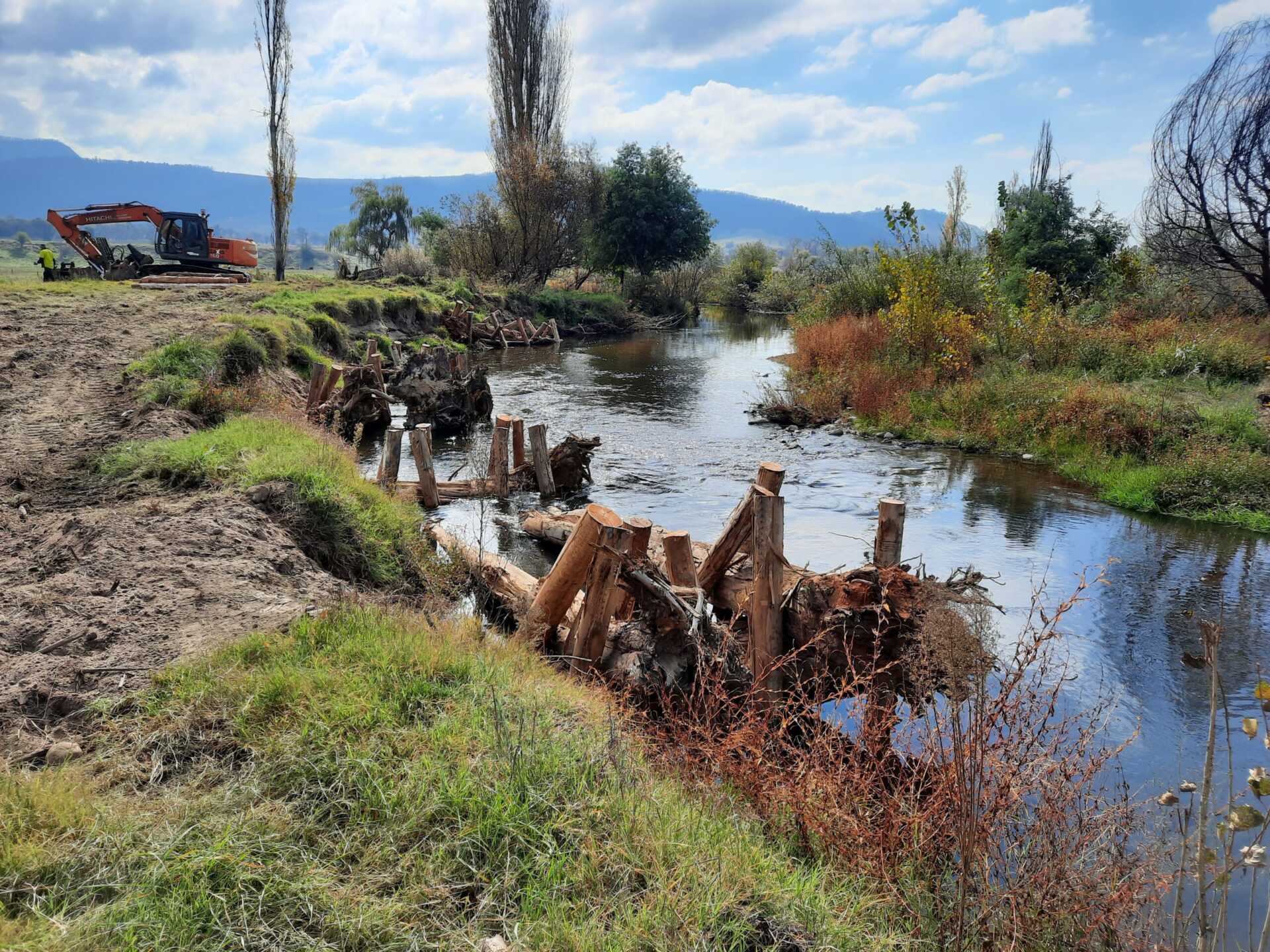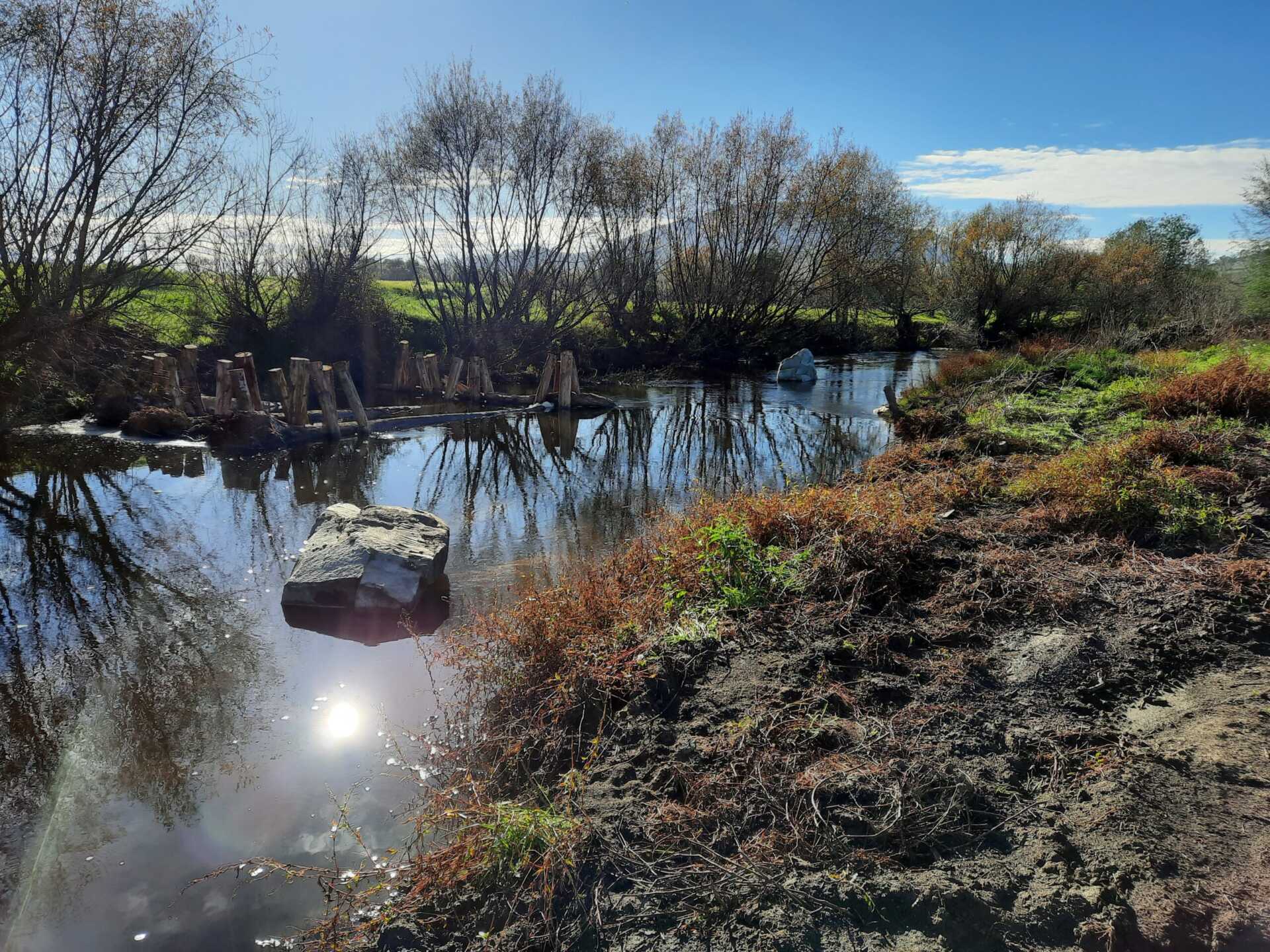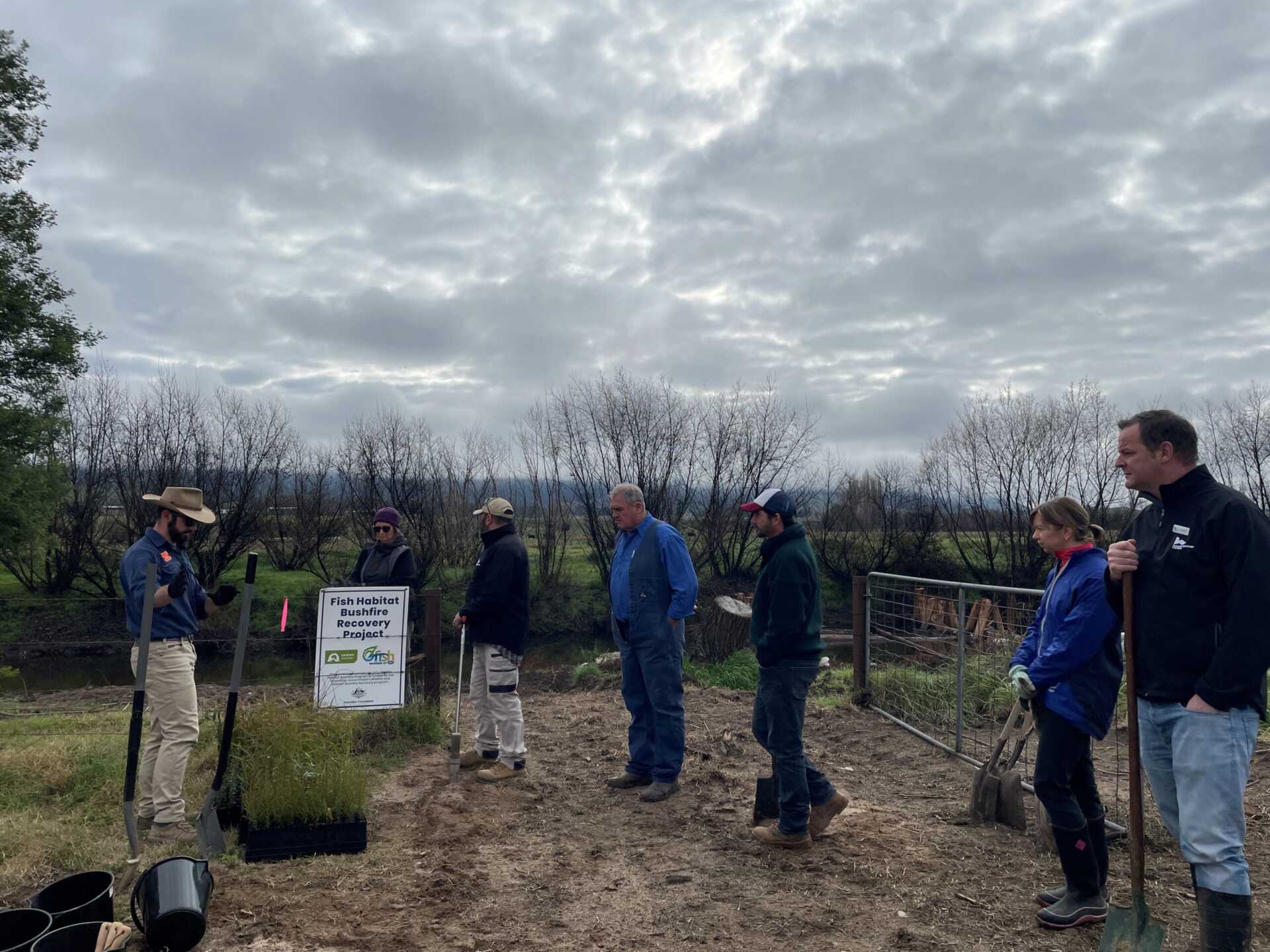Local fishers support recovery of Cudgewa Creek

Local fishers have been central to the recovery of the habitat and fish stocks in the Cudgewa Creek, near Tintaldra in the Upper Murray, following the devastating 2019-20 summer bushfires.
Cudgewa Creek, which meets the Murray river about 2km downstream of Tintaldra, is known for its populations of Murray cod, mountain galaxias and the national endangered trout cod Maccullochella macquariens, also known locally as the bluenose cod, over an area encompassing 825km2.
After a large section of the Cudgewa Creek catchment was devastated by bushfire in 2019-20, significant fish kills were observed across the entire Upper Murray catchment.
A complete loss of riparian vegetation was evident along much of the creek and later rains delivered significant loads of ash and sediment into the waterways.
Previously, other key habitat issues identified within the catchment included exotic weeds, stock access to the creek, historic clearing of native riparian vegetation and degraded water quality, along with bed and bank erosion.
Local fishers with the Corryong Angling Club and Women in Recreational Fishing Network (WIRF) had been assessing the impacts of the damage and the subsequent fish kills at their beloved creek and fishing holes.
They sounded the alarm, with local authorities and fishing conservation charity OzFish Unlimited, leading to a call to kickstart the recovery of their local creek and fish stocks.
Cassie Price, OzFish’s Director of Habitat Programs said it was evident that recreational anglers wanted to help.
“Recreational fishers across nine fire fronts in eastern Australia contacted OzFish in those early days after the fires had ripped through their local fishing grounds. The devastation was palpable, and we were pleased to help get those areas quickly back to being spectacular fish habitat,” Cassie said.
Within six months OzFish in partnership with Landcare Australia had sourced funding from the Australian Government, with a particular focus on recovering habitat of the nationally endangered trout cod.
OzFish partnered with the North East Catchment Management Authority (CMA), which has been managing the delivery of on ground recovery works to direct the funding into priority fish habitat recovery actions.
North East CMA, OzFish and local fishers agreed the installation of more habitat structure in Cudgewa Creek, as well as replacing the riparian vegetation were key elements to kick starting the recovery of fish habitat.
Three new log structures and eight bed seeding boulders have been installed. 400 trees will also be planted. The structures will increase the habitat diversity within the Cudgewa Creek, providing refuge for young fish and reduce the rate of bank erosion and sedimentation.
Shea Bloom, WIRF Leader and Corryong Angling Club representative said, “It’s absolutely brilliant to see this work, we would like to thank OzFish, Landcare Australia and NECMA from the bottom of our very fishy hearts,” said Shea.
“Our community is absolutely thrilled with the amazing works we’ve been able to undertake.
“For the public to see things happening brings us an unbelievable amount of joy.”
Fishers, the local community and agencies will continue their care of the creek as it recovers.
They will monitor and maintain the plants, review fish use of the new habitats over time, undertake eDNA to determine which fish are moving back into the area during recovery and monitor water quality (turbidity), photo-points and riparian percentage cover measures.
Recovery of the habitat and fish stocks in the Cudgewa Creek is supported by North East CMA and OzFish Unlimited, with Australian Government funding from Landcare Australia’s Aquatic Wildlife Habitat Bushfire Program.
Recreational fishers and citizen science monitoring is supported by Boating, Camping, Fishing (BCF) and Global Giving.
For more information on OzFish’s bushfire recovery efforts, visit: Landcare Australia Aquatic Wildlife Habitat Bushfire Program – OzFish Unlimited.
To learn more about the project, to join OzFish or start a Chapter or call 1800 431 308.


